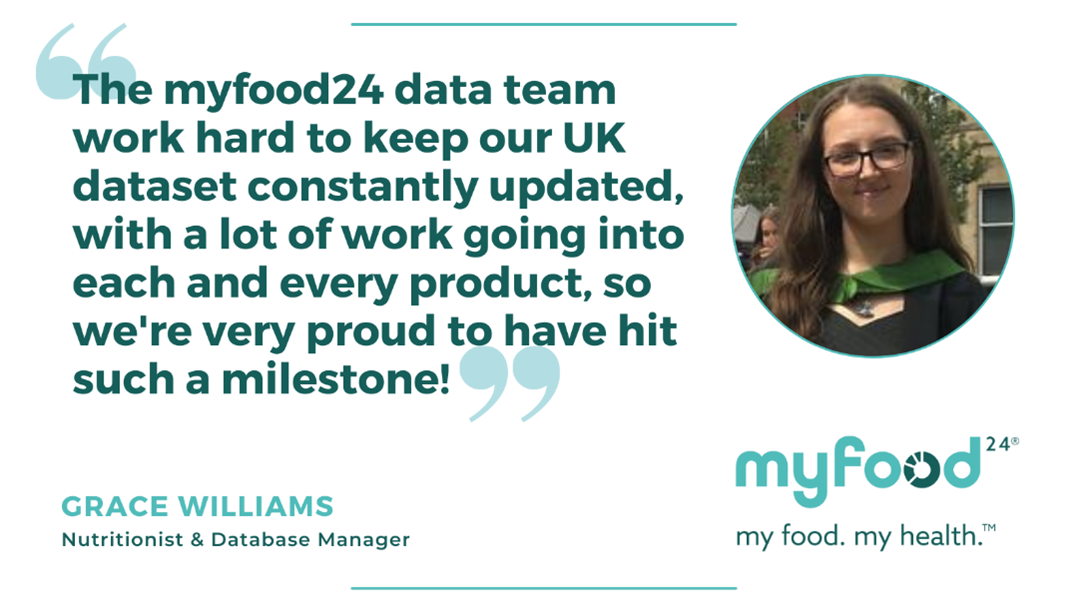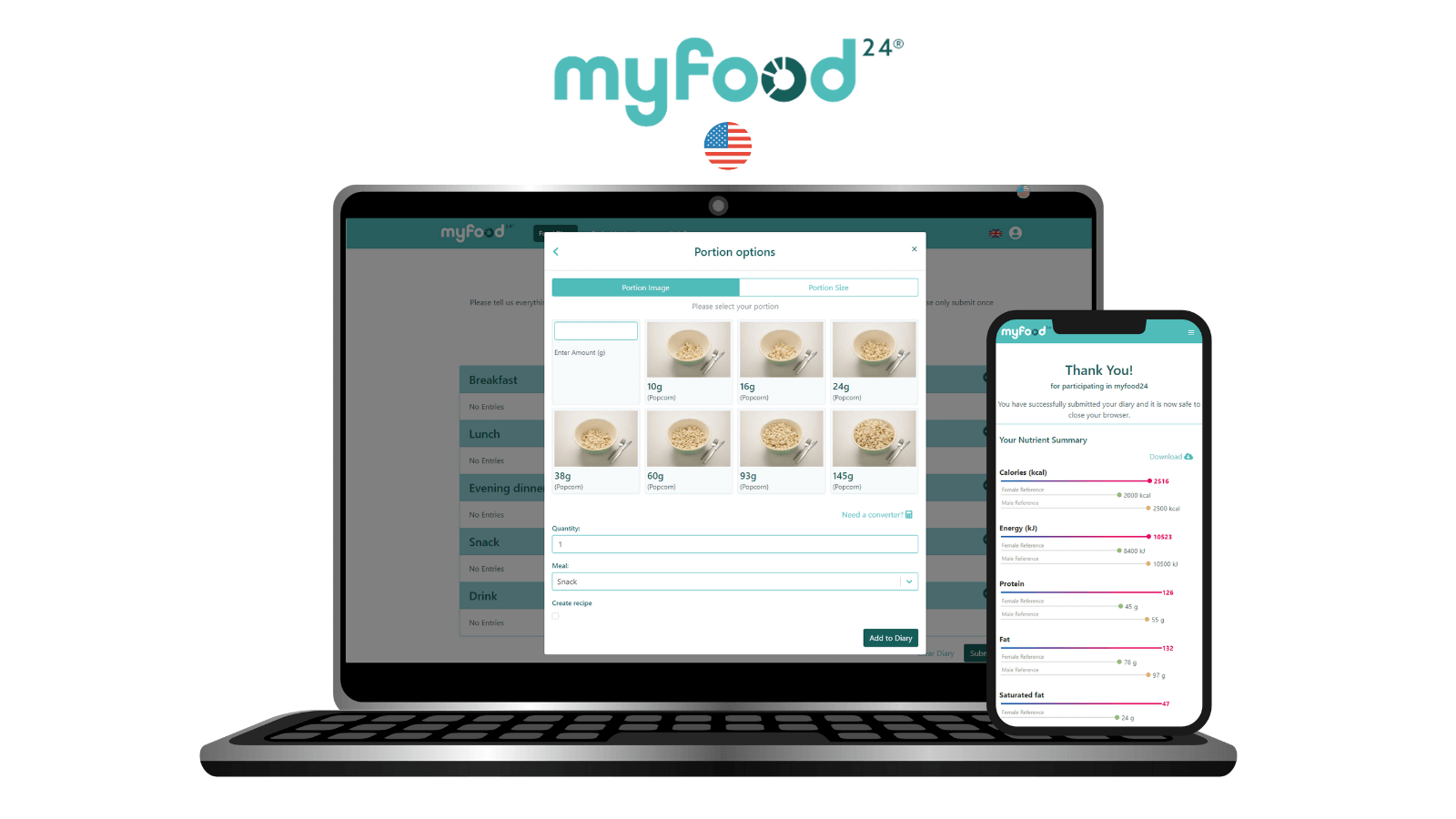-
Expansion of myfood24’s French Food Database
A series of enhancements have resulted in a significantly improved food and nutrient dataset underpinning the French version of myfood24.
-
Measuring Sustainability with myfood24
With over a third of global greenhouse gas emissions coming from food production, we know the powerful impact the food
-
Our UK dataset hits 100,000 food and drink items!
We would like to take this opportunity to congratulate the myfood24 team on expanding our core UK dataset to reach
-
National food tables vs brand-level nutrient data: Implications for dietary assessment
When conducting dietary assessment, whether for population nutrition research or clinical support, it’s important that nutrient estimates are as accurate
-
US version of myfood24 now available!
It’s with great excitement that we can announce a new version of our nutrition analysis software, myfood24, tailored for research
-
Is your Christmas meal good for you? Hidden nutrients in your festive favourites
The Christmas season is finally upon us! And what better way to welcome it than with some nutrient facts you
-
myfood24: Yearly round-up
Welcome to your end-of-year myfood24 updates! From another branded database update to launching myfood24 healthcare: here’s everything the team has
-
myfood24 research is now available offline!
We’re happy to announce that we have launched our first offline version of myfood24, making myfood24 now easier to access
-
How can myfood24 help to support and enhance international nutrition research?
The prevalence of diet-related disease across the globe is significant and is continuing to increase. In fact, poor diet is
-
Thousands of branded products have been added to our French database!
We’re thrilled to announce that our team of data and nutrition experts has been working hard to bring 11,000 new
-
Over 15,000 products added to the myfood24 food & nutrient database
We’ve expanded our database! We’re excited to announce that we’ve made another significant update to our UK food and nutrient database
-
Why is it important to have an accurate food composition database?
One of the greatest challenges in public health nutrition involves limitations in data accuracy when collecting dietary information and at
Database
Interested In Using myfood24?
Why Not Get In Touch or Try Our Free Demo
Why Not Get In Touch or Try Our Free Demo










